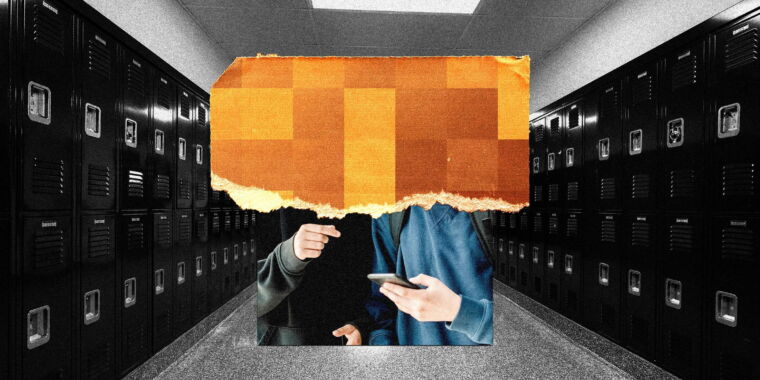Teenage Boys Arrested for Creating and Sharing AI-Generated Fake Nude Images of Classmates
Two teenage boys from Miami, Florida, were arrested in December for allegedly creating and sharing AI-generated nude images of male and female classmates without consent, as reported by the police. The boys, aged 13 and 14, were accused of creating images of students between the ages of 12 and 13. This case from Florida is notable for being the first instance where arrests and criminal charges were brought forward as a result of the sharing of AI-generated fake nude images.
The boys faced third-degree felony charges under a state law passed in 2022, equating the offenses to the level of grand theft auto or false imprisonment. This law makes it a felony to share any altered sexual depiction of a person without their permission.
Law enforcement records revealed that the incident was reported on December 6, 2023, leading to the boys’ arrest on December 22 of the same year. The police reports indicated that the youths used an AI application to produce the fake explicit images which they then shared with each other.
Public Outcry and Legal Ramifications
Following the revelation of the incident, parents of the victims expressed outrage, with some urging the school administration to expel the boys responsible for the creation and distribution of the images. One victim’s mother described the incident as traumatizing for all the families involved, highlighting the discomfort and violation felt by the victims.
The boys’ actions were deemed punishable under a Florida law targeting harassment involving deepfake images generated using AI-based tools. However, legal professionals have raised concerns over the disparity in penalties between fake nude images and real ones, with some calling for a more nuanced approach to addressing such offenses.
Stephanie Cagnet Myron, a Florida lawyer specializing in cases of nonconsensual sharing of nude images, emphasized the possession of child sexual abuse material in cases involving fake nude images of minors. She pointed out that the absence of CSAM charges against the boys may be attributed to their age and legal considerations.
Legal Experts’ Perspectives
Mary Anne Franks, a law professor, and expert on nonconsensual explicit imagery, criticized the differential treatment of fake and real nude images under existing legislation. She questioned the rationale behind imposing harsher penalties for fake images compared to actual explicit content, highlighting the need for a balanced legal framework.
Franks underscored the potential impact on young victims and cautioned against overly punitive measures, especially when dealing with juvenile offenders. She emphasized the importance of evaluating the effectiveness of legal interventions and considering the long-term implications on all parties involved.
This story originally appeared on wired.com.
Image/Photo credit: source url





